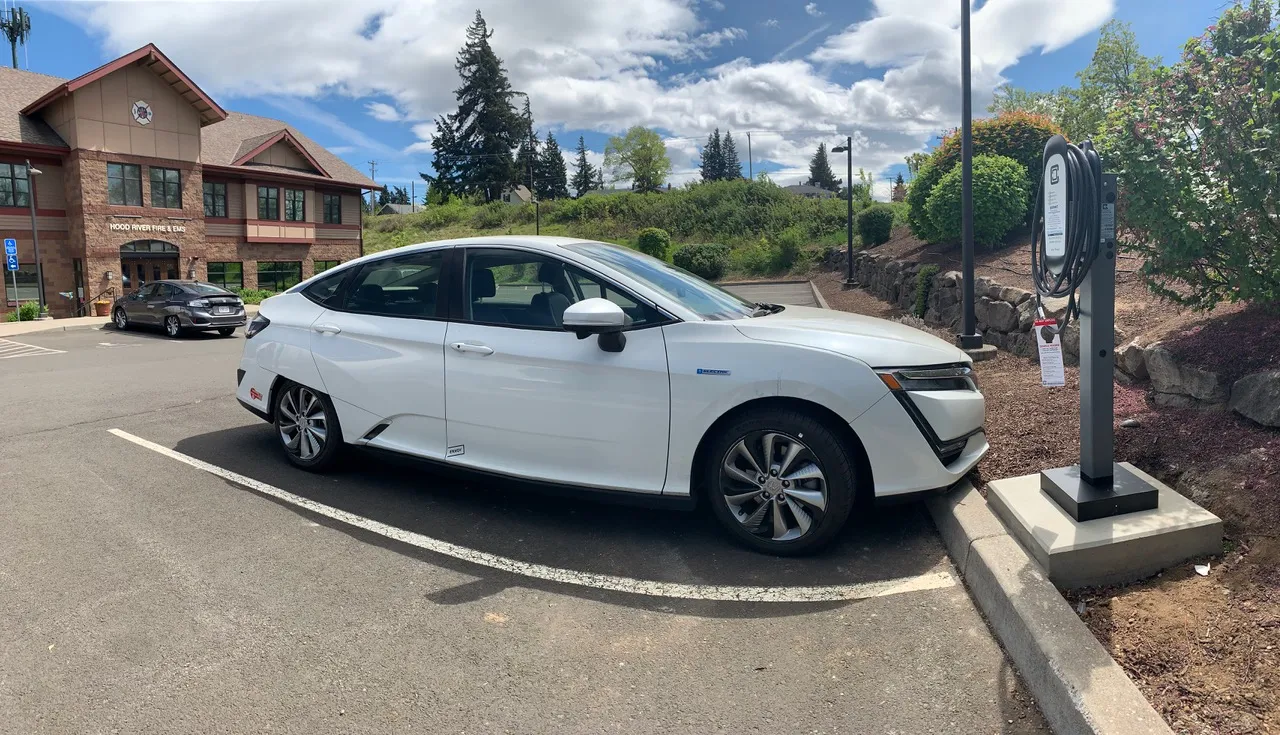Leading car sharing network company Zipcar has announced a new partnership with the city of Houston to launch a municipal electric vehicle (EV) fleet sharing programme, called Houston Fleet Share. Through this initiative, 50 existing city-owned fleet vehicles – including 25 Nissan Leaf EVs – will be outfitted with Zipcar's FastFleet proprietary fleet sharing technology for use by city employees across all departments.
August 23, 2012
Read time: 2 mins
Leading car sharing network company 3874 Zipcar has announced a new partnership with the 6438 City of Houston to launch a municipal electric vehicle (EV) fleet sharing programme, called Houston Fleet Share. Through this initiative, 50 existing city-owned fleet vehicles – including 25 838 Nissan Leaf EVs – will be outfitted with Zipcar's FastFleet proprietary fleet sharing technology for use by city employees across all departments.
This scheme is the first of its kind, funded by the State Energy Conservation Office American Recovery and Reinvestment Act (SECO-ARRA) Transportation Programme (SEP), and is designed to help Houston improve efficiency, promote sustainability and save money – all without sacrificing employee mobility.
The city of Houston currently has the third largest municipal hybrid fleet in the US, with approximately 50 per cent of the city's non-specialty, light-duty fleet having been replaced with hybrid vehicles. By deploying Zipcar's FastFleet car sharing platform in these and other vehicles, as well as implementing the company's self-service online reservation and secure vehicle access system, the programme is expected to help the city gain new efficiencies, improve utilisation and reduce costs, while further reducing the environmental impacts of their fleet.
"Houston is setting the pace for sustainability efforts, and we are very proud to be working with Zipcar to launch the nation's first-ever municipal EV green fleet sharing programme," said Mayor Annise Parker. "Although we've always been known as the oil capital of the world, we're gaining momentum on being the energy capital through programmes like Houston Fleet Share and the Houston Drives Electric initiative. By utilising Zipcar's technology to make our fleet usage more efficient, we will be able to further reduce emissions and cut back on fleet fuel consumption, helping save money while also having a positive impact on our environment," said Parker.
This scheme is the first of its kind, funded by the State Energy Conservation Office American Recovery and Reinvestment Act (SECO-ARRA) Transportation Programme (SEP), and is designed to help Houston improve efficiency, promote sustainability and save money – all without sacrificing employee mobility.
The city of Houston currently has the third largest municipal hybrid fleet in the US, with approximately 50 per cent of the city's non-specialty, light-duty fleet having been replaced with hybrid vehicles. By deploying Zipcar's FastFleet car sharing platform in these and other vehicles, as well as implementing the company's self-service online reservation and secure vehicle access system, the programme is expected to help the city gain new efficiencies, improve utilisation and reduce costs, while further reducing the environmental impacts of their fleet.
"Houston is setting the pace for sustainability efforts, and we are very proud to be working with Zipcar to launch the nation's first-ever municipal EV green fleet sharing programme," said Mayor Annise Parker. "Although we've always been known as the oil capital of the world, we're gaining momentum on being the energy capital through programmes like Houston Fleet Share and the Houston Drives Electric initiative. By utilising Zipcar's technology to make our fleet usage more efficient, we will be able to further reduce emissions and cut back on fleet fuel consumption, helping save money while also having a positive impact on our environment," said Parker.







